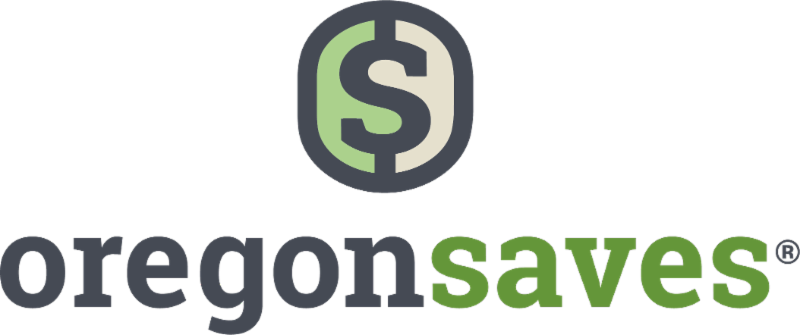OregonSaves is a relatively new program offered by the state for eligible employees who don’t have access to retirement plans at work.
To be eligible, an employee must be at least 18 years old, have earned income, be employed in the state of Oregon, and be eligible for a Roth IRA (traditional IRAs will be offered at a later date).
Once an employer begins facilitating OregonSaves, employees will receive a notice asking them to set up their accounts, opt-out, or wait to be automatically enrolled.
If you do nothing, you’ll start saving automatically after 30 days with the standard savings and investment elections (5% of your gross income).
If you’re self-employed or work for an employer that doesn’t yet facilitate the program, you can enroll in OregonSaves and either set up automatic contributions or make the initial minimum contribution and select your investment options.
Employers that don’t offer an employer-sponsored retirement plan are required to register with OregonSaves on a rolling basis, depending on the number of employees.
There has been no way to enforce this law, but under Senate Bill 164, which takes effect on January 1, 2020, an employer’s failure to comply with OregonSaves requirements is unlawful.
Employees will be able to file complaints with the Bureau of Labor and Industries (BOLI) for violations if the employer has failed to register with OregonSaves for at least two years after the date it was required to do so.
By the time the new law takes effect, enough time will have elapsed for complaints to be made about employers with 100 or more employees.
Employers employing 50 to 99 employees should have registered by May 15, 2018, and those with 20 to 49 employees should have registered by December 15, 2018. Employers with 10 to 19 employees were supposed to register by May 15, 2019.
The deadline for employers with 5 to 9 employees is November 15, 2019. Those with four or fewer employees have until May 15, 2020, to register.
BOLI may assess penalties against an employer of up to $100 for each employee who is eligible to participate in the Plan, up to a maximum of $5,000 per year.
OregonSaves does not apply to employers who already offer an employer-sponsored retirement plan, but this doesn’t mean you can ignore the law. You’ll have to certify your exemption.
Employer-sponsored retirement plans include 401(k) plans, qualified annuity plans under section 403(a), tax-sheltered annuity plans under section 403(b), Simplified Employee Pension plans under section 408(k), SIMPLE IRA plans under section 408(p), and governmental deferred compensation plans under section 457(b). They do not include payroll deduction IRAs.
California, Connecticut, Illinois, Maryland, Massachusetts, New Jersey, and Washington have similar laws that mandate employer participation, though Massachusetts’ plan is limited to certain nonprofits. New York, Vermont, and Washington have created voluntary programs, and more than 20 other states have considered legislation establishing a state-run retirement plan.
The city of Seattle has enacted an ordinance creating a mandatory program for those within Seattle city limits.
Whether you are an employer who needs to register with OregonSaves or an employee whose employer isn’t in compliance, please feel free to contact us if you have any questions about Oregon’s new law. Also, please let us know if you need more information about the applicable laws in your region.






